Our partners work to increase access to essential medicines.
See where we work for country-specific information.
-

Asociación Nacional de Personas Viviendo con VIH/SIDA en Honduras), Honduras
ASONAPVSIDAH was established in 2000 in response to the need for a national organization representing people living with HIV/AIDS in Honduras. It was formed based on existing self-support patient groups and has since expanded to include 46 groups across the country. The organization has played a crucial role in advocating for the rights and healthcare needs of people living with HIV.
ASONAPVSIDAH has a long history of collaboration with ITPC LATCA, focusing on intellectual property and access to medicines. Through this partnership, the organization has contributed to efforts aimed at improving the availability and affordability of essential treatments for HIV and related diseases. By working at both national and regional levels, ASONAPVSIDAH continues to push for policy reforms that enhance healthcare access for people living with HIV in Honduras.
-
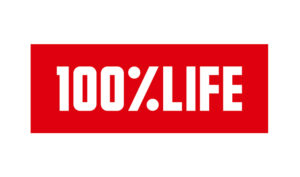
100% LIFE, Ukraine
100% Life is the largest patient-led organization in Ukraine. Operating in 25 regions in Ukraine, the organization works to provide access to treatment and promote the rights of people living with HIV, TB, HCV and Covid.
The organization has been operating since 2001, annually it provides services to more than 190,000 patients, 90,000 of whom are PLWH. 100% Life has been a strong partner of ITPC since 2014 and is a founding member of the Make Medicines Affordable campaign.
Achievements of 100% Life in Ukraine include successful implementation of a patent law reform providing for better access to medicines, and filing of oppositions on islatravir, bedaquiline and tocilizumab. Through its work, 100% Life has brought to thousands of people access to HIV and hepatitis C medicines.
-
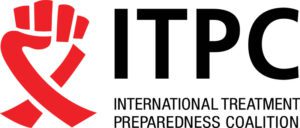
International Treatment Preparedness Coalition
The International Treatment Preparedness Coalition (ITPC) is a global activist organization that leads the Make Medicines Affordable partnership.
ITPC is a global movement of people living with HIV, Hepatitis C and TB, treatment activists and their supporters. The coalition is dedicated to the goal that all people have access to effective, affordable and sustainable treatment.
-

Network of TB People, Georgia
TB People is a community-led organization in Georgia that promotes access to affordable medicines. The organization works to strengthen the Network and build member capacity, ensure adequate international and domestic financing of healthcare needs, and support innovative solutions within the TB/HIV response.
Network of TB People Georgia successfully filled oppositions for the first time in 2021. Additionally, in 2023, Georgian Parliament adopted legislative amendments restricting the scope of utility model patents, following TB People’s proposal in 2021.
-
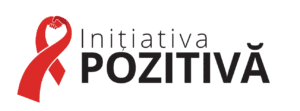
Initiativa Pozitiva, Moldova
Initiative Pozitiva works to strengthen community systems and influence public opinion and policies. It is well placed to now focus its work on removing IP barriers (patent oppositions, removal of TRIPS provisions, CL and others) as well as work on law reform to mitigate the impact of TRIPS-plus provisions like data exclusivity.
Initiative Pozitiva is one of the largest and most experienced non-governmental organizations working in the field of public health and protection of patients’ rights in the Republic of Moldova. It has extensive experience in increasing treatment access by increasing the state budget and promoting international procurement for national health programs
Positive Initiative successfully filled a patent opposition on bedaquiline in 2021. With contributions from Positive Initiative, the Parliament of Moldova approved draft amendments to the law on the protection of inventions, which include TRIPS flexibilities.
-
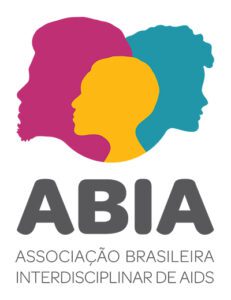
Associação Brasileira Interdisciplinar de AIDS (ABIA), Brazil
The Brazilian Interdisciplinary AIDS Association (ABIA) is a non-profit non-governmental organization that was founded in 1987 and acts in the mobilization of civil society against HIV, for access to treatment and the defence of human rights of people living with HIV (PLHIV).
ABIA plays a unique role in Brazil, working in partnership with the government on intellectual property (IP). It has conducted extensive research around laws and policies affecting antiretrovirals (ARVs), direct-acting antivirals (DAAs), and patents, and is a well-respected technical advisor.
ABIA has filed many critical and successful patent oppositions, including on dolutegravir, molnupiravir, and cabotegravir.
-
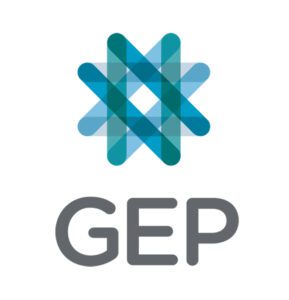
Fundación Grupo Efecto Positivo (FGEP), Argentina
FGEP is a nonprofit organization working to eliminate barriers to access to HIV medications generated by intellectual property rights and other exclusive rights in Argentina.
Since 2006, Fundación Grupo Efecto Positivo (FGEP) has worked on antiretroviral (ARV) patents and, more recently, on access to direct-acting antivirals (DAAs). FGEP has a strong working relationship with Argentina’s patent office (INPI) and maintains effective collaborations with the government, civil society organizations (CSOs), and local generic manufacturers as leaders in the implementation of TRIPS flexibilities.
FGEP has filed many patent oppositions, including successful challenges to patents on islatravir, sofosbuvir/velpatasvir, and remdesivir.
-
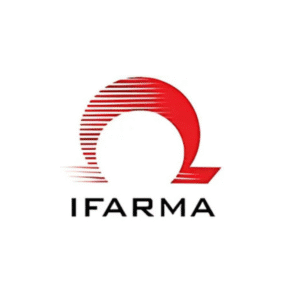
Fundacion IFARMA, Colombia
IFARMA works on issues of access, use, and quality of medicines in Colombia, striving to ensure equitable and affordable treatment for all.
Since 1993, IFARMA has played a key role in Colombia’s public health landscape. Their strong relationships with civil society groups and government institutions, including the National University of Colombia, have positioned them as a vital contributor to medicine access policy. They have engaged in the development of national policies on hepatitis prevention and treatment, biosimilars legislation, and advocacy for compulsory licensing.
IFARMA has documented and supported campaigns for compulsory licenses and continues to leverage its knowledge of Colombia’s local manufacturing landscape to promote domestic production of vaccines and medicines.
-
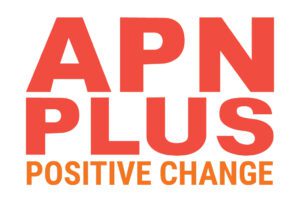
Asia-Pacific Network of People Living with HIV/AIDS (APN+)
APN+ is the regional network of people living with HIV in the Asia Pacific region, committed to non-discrimination and equity.
Since 1994, its network of country members has worked on access to medicines through capacity building, community mobilization and advocacy.
-
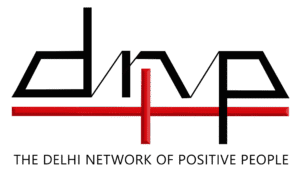
DNP+ India
DNP+ works to ensure equitable access to treatment by advocating for reforms in intellectual property (IP) laws and policies and by building capacity and awareness around treatment rights.
DNP+ has a long-standing presence in India, engaging in patent law reform, free trade agreement (FTA) advocacy, IP-treatment literacy, capacity building, and strategic dialogue with both the government and media.In India, DNP+ played a key role in successfully opposing patent on pediatric bedaquiline, leading to its rejection in July 2024. Additionally, DNP+ played and important role campaigning on the India-EFTA trade deal’s impact on medicine access, leading to the removal of data exclusivity provisions from the final TEPA agreement signed in March 2024.
-
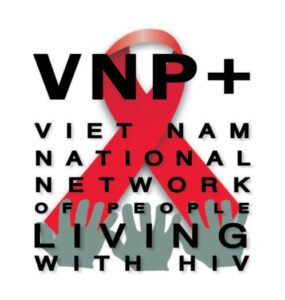
VNP+, Vietnam
The Viet Nam Network of People Living with HIV brings together 150 self-help groups and alliances across the country, ensuring their meaningful participation in the national AIDS response.
Since Vietnam joined the WTO in 2007, VNP+—in collaboration with APN+—has worked to build local capacity through regional strategic dialogues, legal submissions, and advocacy for the use of TRIPS flexibilities. The network has consistently pushed for government engagement on IP issues to protect access to treatment.
VNP+ has successfully challenged a patent on lopinavir/ritonavir and filed oppositions on bedaquiline and lenacapavir. During the TPP negotiations, VNP+ effectively influenced negotiators to reject harmful TRIPS-plus provisions and to include additional safeguards for Vietnam.
-
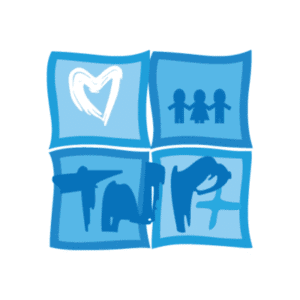
TNP+, Thailand
TNP+ works to strengthen the capacity and rights of people living with HIV/AIDS through treatment literacy, advocacy, and community mobilization.
As a long-term partner of ITPC Global, TNP+ has a strong history of grassroots engagement, policy advocacy, and technical training. They have played a key role in community capacity-building and have conducted numerous local-level trainings under previous projects.
TNP+ has filed patent oppositions and continues to engage in policy dialogue around patent law amendments and TRIPS-plus provisions in free trade agreements (FTAs). They also conduct capacity-building on IP and treatment literacy, as well as market and patent intelligence efforts to support access to medicines.
-
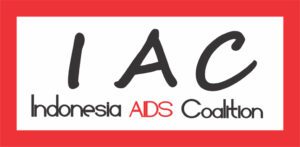
Indonesia AIDS Coalition, Indonesia
Formed in 2011, IAC works to support equitable access to health, with a focus on advocacy, policy change, and local production of essential medicines.
Since 2016, IAC’s advocacy has contributed to antiretroviral (ARV) price reductions and the establishment of drug price monitoring systems. In 2019, they collaborated with the presidential office to promote local ARV production and reduce reliance on state-owned pharmaceutical monopolies. In 2021, IAC joined other organizations in successfully advocating for a government use license on remdesivir and favipiravir for COVID-19 treatment.
IAC has participated in global advocacy for Indonesia to co-sponsor the TRIPS waiver. They continue to engage in free trade agreement (FTA) discussions, provide IP capacity-building, pursue patent oppositions, and promote government use licences and local production initiatives.
-

ITPC EECA (Eurasia)
The Coalition aims to maximize the involvement of people living with HIV and their advocates in the decision-making processes that affect their lives – at the international, regional, national and local levels.
ITPC EECA and partner organizations in Kazakhstan, Kyrgyzstan, Belarus, Moldova and Uzbekistan have substantial IP capacity. They have been involved since the birth of the Make Medicines Affordable campaign; opposing patents, preparing market analysis and IP legislation monitoring, developing proposals for improving the regulatory framework, and reducing prices for target drugs.
Their achievements over the past years include two compulsory licenses for remdesivir in Russia, first civil society patent oppositions in Armenia, Belarus, Kazakhstan, and Kyrgyzstan, and the first opposition to a Eurasian patent in Kyrgyzstan. -
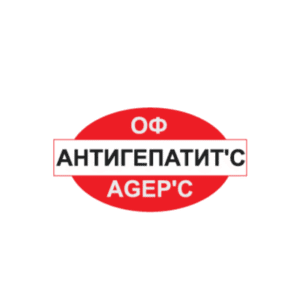
AGEPC, Kazakhstan
AGEPC is dedicated to improving the social and economic conditions of people living with hepatitis B and C, with the goal of increasing their life expectancy. The organization seeks to drive government and public policy changes that emphasize prevention, diagnostics, and timely access to modern treatments for individuals affected by these infections.
AGEPC advocates for the rights of people living with hepatitis B and C by lobbying for improved access to treatment and legal protections. The organization works to combat discrimination, raise awareness among key stakeholders, and strengthen the capacity of regional NGOs. It also provides training for patients and healthcare professionals while fostering community engagement through cultural and social activities. Additionally, AGEPC collaborates with international organizations to enhance treatment opportunities and medical expertise in Kazakhstan.
-

ANSWER, Kazakhstan
ANSWER is committed to advancing intellectual property (IP) policy reforms to enhance access to essential medicines. The organization works to ensure that people living with HIV and other health conditions benefit from fairer IP regulations and improved treatment accessibility.
ANSWER is ITPC EECA’s partner in Kazakhstan and has substantial IP expertise, actively contributing to intellectual property policy reforms in the country.
ANSWER has successfully managed the inclusion of a government-use license in Kazakhstan’s National Strategy for IP Development (2021-2025), marking a significant step toward improving access to essential medicines. The organization has positioned itself as a key player in IP-related advocacy and policy reform and is well-placed to drive further advancements in the coming years.
-
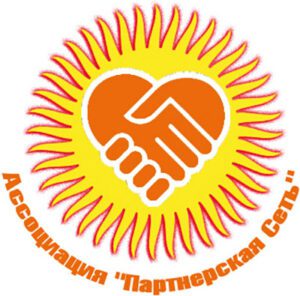
The Kyrgyzstan Partnership Network, Kyrgyzstan
The Kyrgyzstan Partnership Network is committed to advocating for fairer intellectual property policies and improving access to life-saving treatments. The organization aims to strengthen legal frameworks and ensure equitable access to essential medicines by engaging with national and regional institutions, including the Eurasian Patent Office (EAPO).
The Kyrgyzstan Partnership Network has been actively involved in intellectual property advocacy and patent opposition efforts in collaboration with ITPC EECA. Through its work, the organization has contributed to strengthening the legal framework surrounding intellectual property and access to medicines in Kyrgyzstan.
The Kyrgyzstan Partnership Network has made significant progress during the current project implemented with ITPC EECA. It has issued its first-ever patent oppositions at the national level, marking a crucial step in challenging monopolies on essential medicines. Additionally, the organization has launched the first-ever case for opposing a Eurasian patent, setting a precedent for similar actions in the region.
-
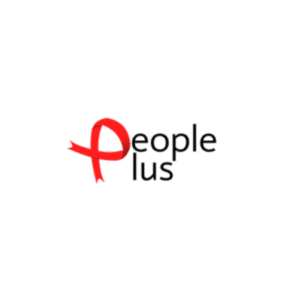
People Plus, Belarus
People Plus is a community-based organization working to create conditions for a dignified and high-quality life for them within society. The organization aims to uphold the legal rights of PLHIV and their families, provide social, psychological, and legal assistance, and reduce stigma and discrimination. Additionally, People Plus advocates for access to high-quality HIV services and works to make innovative treatments for HIV, tuberculosis, and hepatitis C more affordable by overcoming intellectual property barriers.
Today, People Plus is recognized as a key civil society actor in Belarus, offering direct support to PLWH from all key and vulnerable populations in 23 cities across the country. Through its national network, the organization mobilizes individuals living with HIV, their families, and professionals in the HIV response to foster a resilient, inclusive, and empowered community.
-

Positive Movement, Belarus
Positive Movement is a civil society organization in Belarus focused on protecting the health and rights of individuals affected by HIV and drug use. The organization plays a key role in harm reduction efforts, offering prevention programs, medical and social support, and advocacy for improved healthcare access.
Positive Movement has been instrumental in advocating for opioid substitution therapy (OST) and ensuring access to HIV and hepatitis C treatments. The organization has established multiple prevention points and social support centers across Belarus, reaching thousands of people with harm reduction services and providing HIV testing and counseling.
Positive Movement continues to work on reducing stigma and discrimination while advocating for policy reforms to improve healthcare access in Belarus.
-

Positive People Armenia Network, Armenia
PPAN is a nonprofit organization dedicated to improving the quality of life of people living with HIV, tuberculosis, and hepatitis. The organization works to combat stigma and discrimination, foster non-discriminatory attitudes, prevent the spread of infections, and create an informed society where individuals feel empowered to speak openly about their health status.
PPAN was established in 2006 and has been actively involved in healthcare advocacy, treatment access, and community support initiatives in Armenia. The organization has implemented numerous projects focused on providing care and support for people living with HIV, tuberculosis, and hepatitis. PPAN has also conducted research on HIV infection and strengthened civil society organizations in their response to HIV in Armenia.
PPAN has played a key role in the efforts to improve access to medicines and strengthening intellectual property laws in Armenia, contributing to the issuance of the country’s first-ever compulsory license on TDF/FTC, a crucial step in expanding treatment access. Additionally, the organization has supported legal system reforms aimed at improving access to essential medicines. However, continued efforts are necessary to further intellectual property law reforms and to monitor the implementation of these legal changes.
-

Ishonch va Yahot, Uzbekistan
Ishonch va Yahot supports and unites people living with HIV (PLHIV) in Uzbekistan, improves their quality of life, combats stigma and discrimination, and contributes to the national HIV/AIDS response.
Established in 2003 with support from UNAIDS, the organization brings together vulnerable groups under the motto “Community Platform and National Dialogue!” and advocates for inclusive healthcare, anti-stigma initiatives, and government accountability.Ishonch va Hayot has provided social support to PLHIV through grants and volunteer work and led national efforts to expand access, reduce stigma, and improve laws and policies
-
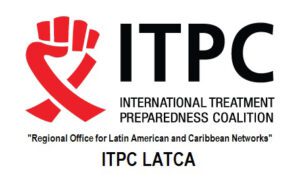
ITPC LATCA, Guatemala
ITPC LATCA, based in Guatemala, is one of the few organizations in Central America actively working to reduce the prices of HIV and HCV treatments and improve their affordability. The organization operates in Guatemala, Honduras, and El Salvador while also implementing regional-level initiatives in collaboration with partners in Ecuador, Costa Rica, Paraguay, Bolivia, and the Dominican Republic.
ITPC LATCA has made significant progress in increasing access to essential medicines. The organization has filed patent oppositions on remdesivir and doravirine, contributing to broader efforts to lower drug prices. Leveraging strong relationships with the heads of national HIV programs, LATCA
-
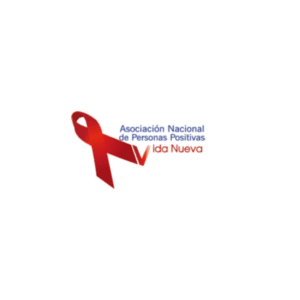
Asociación Nacional de Personas Positivas Vida Nueva, El Salvador
ANP+VN is a community organization with extensive experience in advocating for the human rights of people living with HIV (PLHIV) and improving access to treatment for HIV, tuberculosis (TB), and related diseases. The organization has worked for years on intellectual property (IP) and access to medicines in partnership with ITPC LATCA, playing a key role in shaping policies and interventions in the region.
ANP+VN has achieved significant progress in securing access to medicines through its advocacy efforts. During previous Unitaid-funded projects, the organization contributed to policy changes and legal reforms aimed at reducing barriers to treatment. By working alongside ITPC LATCA, ANP+VN continues to push for improved access to life-saving treatments and stronger protections for the rights of PLHIV.
-
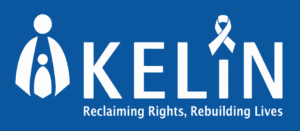
Kenya Legal & Ethical Issues Network on HIV and AIDS (KELIN), Kenya
KELIN is a non-governmental organization dedicated to promoting health and human rights both nationally and regionally. The organization works with communities to demand accessible, affordable, and high-quality healthcare while advocating for legal and policy reforms that enhance public health systems.
KELIN has been actively involved in legal and policy advocacy to improve healthcare access in Kenya and the broader region. In 2019, the organization collaborated on a study examining the use of TRIPS flexibilities in Kenya and Uganda, identifying key challenges and opportunities for increasing access to medicines for HIV, tuberculosis (TB), hepatitis, and non-communicable diseases.
KELIN has played a critical role in advancing policy dialogue, research, and advocacy efforts related to intellectual property (IP) rights and access to medicines. The organization continues to advocate for the use of TRIPS flexibilities and the removal of legal barriers to local pharmaceutical production. With its strong expertise in IP, legal reform experience, regional partnerships, and credibility among health stakeholders at multiple levels, plays a leading role in efforts to improve healthcare access and affordability.
-
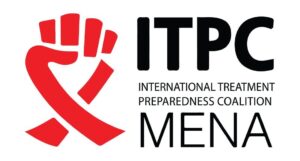
ITPC MENA, Morocco
ITPC MENA has extensive experience working on intellectual property (IP) and access to medicines in Morocco and across the MENA region. The organization has been at the forefront of advocacy and policy change, aiming to improve access to essential medicines.
In 2016, ITPC MENA pioneered a post-voluntary licence (VL) strategy for dolutegravir (DTG), leading to Morocco’s inclusion in the DTG license. The organization coordinates the MENA Community Advisory Board (MENACAB) and provides frequent IP training for stakeholders across MENA and francophone Africa. ITPC MENA conducted the first-ever opposition to a patented medicine in Morocco and has engaged with local pharmaceutical manufacturers to increase access to medicines. Due to its strong track record, expertise, and established relationships with key stakeholders, including institutions, ministries, civil society organizations (CSOs), and manufacturers, ITPC MENA is a key driver of progress on IP and medicine access across the region.
-

Center for Health, Human Rights and Development (CEHURD), Uganda
The Center for Health, Human Rights and Development (CEHURD) is a non-profit research and advocacy organization founded in 2010. CEHURD works to promote health and human rights through legal frameworks, policy engagement, evidence-based advocacy, and community mobilization.
CEHURD has played a key role in shaping health policies and legal reforms in Uganda. The organization operates at both the national level and in over 14 districts, using law and advocacy to improve healthcare access and defend the rights of vulnerable populations.
-
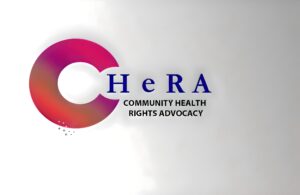
CHERA, Malawi
Community Health Rights Advocacy (CHeRA) is a non-governmental organization advocating for the health rights of minority groups in Malawi. Established in 2017, the organization is based in Lilongwe, the capital of Malawi, and operates in six core districts. CHeRA works to enhance Malawi’s male and trans sex workers’ capacity to take up agency for their rights, protect each other from violence, and foster active citizenship.
With support from the Red Umbrella Fund and Open Society Foundation, CHeRA achieved a landmark victory: male sex workers were recognized as a distinct population in Malawi’s Revised National HIV Strategic Plan (2020–2025).
-

ENDA Santé, Senegal
ENDA Santé is an international non-profit organization based in Senegal that has been actively involved in public health advocacy since 1987. It collaborates with community-based organizations, government institutions, and international agencies to combat HIV/AIDS, malaria, and other public health challenges in Senegal and West Africa.
With extensive experience in health service access and treatment advocacy, ENDA Santé has worked with Unitaid on the ATLAS HIV self-testing (HIVST) project. The organization is well-positioned to lead regional advocacy efforts on IP and access to medicines. Given Senegal’s commitment to strengthening national pharmaceutical sovereignty, ENDA Santé has opportunities to explore increased local drug production in collaboration with Senegalese manufacturers.
-
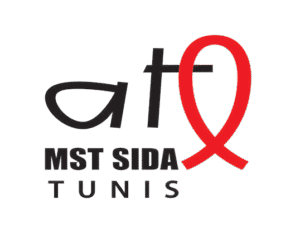
ATL MST-SIDA, Tunisia
ATL MST/SIDA is a Tunisian community-based organization focused on HIV and related disease prevention and treatment access. The organization has been active in advocacy at the national level, particularly in intellectual property and access to medicines.
ATL MST/SIDA has a long-standing collaboration with ITPC MENA and has been involved in national advocacy campaigns against TRIPS-plus provisions in the EU-Tunisia Free Trade Agreement and has played a key role in the global campaign for dolutegravir access across Africa. Thanks to its expertise, strong government relationships, and membership in Tunisia’s Country Coordinating Mechanism (CCM), ATL MST/SIDA brings a grounded understanding of national dynamics, strong ties with decision-makers, and deep experience in community advocacy for access to medicines.
